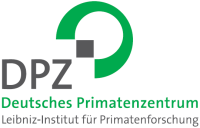Support making RiG more international!
Start SurveySupport making "Research in Germany" more international! Your expertise and commitment are the key to the further development of promoting the German research landscape. We invite you to take part in our online survey and share your valuable experiences and opinions. Duration: 7-10 min.
Please start the survey at the end of your visit.
Why langurs drink salt water
Endangered Cat Ba langurs defy poor environmental conditions and show remarkable adaptation
Oct 28, 2024, 3:11:30 PM
Dr. Susanne Diederich
, Deutsches Primatenzentrum GmbH - Leibniz-Institut für Primatenforschung


A study by the German Primate Center - Leibniz Institute for Primate Research in Göttingen and Leipzig Zoo shows the remarkable adaptability of the critically endangered Cat Ba langurs. Despite low genetic diversity, the langurs have retained key genetic traits that help them survive in their isolated environment on Cat Ba Island in Vietnam. One of these remarkable adaptations is the ability to drink salt water (Nature Communications). The study is dedicated to the genetic challenges faced by the fewer than 100 remaining individuals of this primate species. Due to the dramatic decline of its population, the species suffers from genetic impoverishment, high inbreeding and a potentially increased susceptibility to disease. Nevertheless, analysis of their genetic information shows that genetic diversity has been maintained in functionally important areas of their genetic information. This enables the Cat Ba langurs (Trachypithecus poliocephalus) to continue to cope adequately with changing environmental conditions. “Their adaptability makes the animals unique. Drinking salt water is an outstanding example of this,” says Liye Zhang, geneticist at the German Primate Center (DPZ) and lead author of the study. This extraordinary ability is a direct consequence of their isolated island home, where there are only limited freshwater sources. The researchers show that changes in certain genes have probably increased tolerance to salt water. These genetic adaptations enable langurs to cope with the high sodium content of salt water and thus contribute to their survival in this unique environment. The Cat Ba langur: a symbol of adaptability and urgent need for protection The Cat Ba langur, one of the rarest primate species in the world, is not only highly endangered, but also symbolizes nature's remarkable ability to adapt to challenging conditions. “These research results highlight the urgency of better protecting the Cat Ba langur and its habitat,” emphasizes Christian Roos, scientist at the DPZ and co-author of the current study. Although many mammal populations are declining worldwide, the genetic effects of such population declines often remain unexplored. The Cat Ba langur is a valuable model for analyzing the consequences of severe population declines on the genetic diversity of a species. The population of this langur species once numbered several hundred animals, but was reduced to an alarming 40 individuals by 2004 due to hunting, poaching and habitat loss. The population has since recovered to around 85 animals. Nevertheless, the species is still threatened with extinction, particularly due to habitat fragmentation, disturbance from uncontrolled tourism and increasing inbreeding. These threats underline the need to expand existing conservation measures and intensify targeted conservation programs in order to ensure the long-term survival of this primate species. The Cat Ba Langur Conservation Project The Cat Ba Langur Conservation Project, initiated in 2000 by Allwetterzoo Münster and the Zoological Society for Species and Population Conservation, works together with Cat Ba National Park to protect primates and other endangered animal and plant species as well as their unique habitat. Since 2019, Leipzig Zoo has been responsible for implementing the project at Cat Ba, which also operates a rescue and conservation center for endangered primates in Vietnam. Descendants of Cat Ba langurs originally confiscated from the illegal wildlife trade are cared for and bred there. “Together with our Vietnamese and international partners, we have achieved a great deal in recent years to protect these unique langurs and their habitat. The doubling of the population is an outstanding example of successful holistic species and nature conservation. Nevertheless, it would be premature to call this highly endangered species saved. In the coming years, it will be increasingly important to effectively protect the habitat in the long term and, if necessary, to recolonize other habitats on the island,” emphasizes Jörg Junhold, Director of Leipzig Zoo. Printable pictures and videos can be found under the following link: https://medien.dpz.eu/pinaccess/showpin.do?pinCode=Pl3JYBrqMgST You can also find the press release on our website. Please send us a a copy of the publication. The German Primate Centre (DPZ) - Leibniz Institute for Primate Research conducts biological and biomedical research on and with primates in the fields of infection research, neuroscience and primate biology. The DPZ also maintains five field stations in the tropics and is a reference and service center for all aspects of primate research. The DPZ is one of the 96 research and infrastructure facilities of the Leibniz Association. The zoo of the future is becoming a reality in Leipzig. As one of the oldest, most species-rich and at the same time most modern zoos, Leipzig Zoo impressively presents animal diversity in six adventure worlds. More than 650 animal species can be discovered and observed in naturalistic enclosures. The innovative ‘Zoo of the Future’ concept, which combines species-appropriate animal husbandry with extraordinary animal encounters for visitors and a global commitment to species conservation in an unrivalled way, has been implemented since 2000.